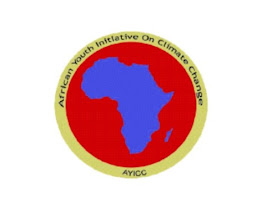Walking the Talk …. From Doha to Poland
Doha
came and went in 2012. So was Durban (2011) and Cancún (2010). The rhythm is and was predictably familiar: opening
presentations - three minutes each for delegates to bang their particular
drums, platitudes and climate change legalese, lack of consensus especially on
environmental funding and ultimately lack of direction on the way forward.
Contrary to the first COP’s which yielded tangible resolutions, declarations
and deadlines (such as Kyoto Protocol), the contemporary COPs are much of a
circus where talk takes the center stage but the walk is a mere chimera.
Probably, the only unique feature of the Doha’s COP 18 was going paper free,
which is a far cry from the expectations of COP 18 which largely revolved around
second commitment to Kyoto Protocol as well as more financial commitment by the
developed and industrialized countries. Closer home, the Kenyan delegation
drawn from government and the civil society was well in attendance. But the
question that was never answered is: what did they bring home and how do we
move forward?
Meanwhile, as the delegates were busy talking,
Kenya and the larger Horn of Africa continued to shoulder the rampant effects
of climatic change. Erratic weather patterns, crop failure, water borne
diseases and water-related conflicts have become a common phenomenon in the
recent past. High rate of melting of glaciers in Mount Kenya is alarming, which
in turn have led to loss biodiversity as well as rise in the water level in
Indian Ocean. Very soon Mombasa Island might be buried in the historical book,
not to mention the dwindling fish stocks in the ocean and dying coral reefs which
are fish breeding grounds. Climate change is also highly attributed to rising
global temperatures leading to increased water scarcity in a county whose 80%
of total land is Arid and Semi Arid and plays host to over 10 million people.
The effects of climate change are inarguably rampant in all social and economic
sectors, and the time to walk the talk is now!
As we strategize on the COP 19 in Poland, we (the
Africans), governments and the civil society need to have a strong stand in
regard to our position in matters climate change. We need to go back to the
basics, that is, informing our communities on the need for climate change
mitigation, ways to do it and benefits of doing it. Our recent research in our
climate change mitigation campaign dubbed Juatenda (know and act) - , we have
established that most of the communities across the country are not fully aware
of climate change, operations of UNFCCC and COP and how/why they are there in
the first place as well as the provisions and policies under National Climate Change Response Strategy (NCCRS) which was
launched in early 2010.
As a way forward, we need to increase the local
community engagement in climate change, demystify the COP processes and
adoptions such as Kyoto Mechanisms e.g. emissions trading, clean development
mechanism and joint implementation. In addition, intense negotiations and
amplifying our voices are fundamental in ensuring that the African’s position
is clear and unfaltering in COP 19.
Lastly, knowing the leverage that the media
has in agenda setting in Africa, it is paramount to build the capacity of our
journalists to report on climate changes so that they can ably cover the local
context of climate change as well as the proceedings of COP’s from an informed
and exposed perspective. These are fundamental actions that we need to take as
we prepare for Poland.
With that in place, we can comfortably walk the
COP talk all the way to and beyond Poland!!!
By: Kenny Wahome

Comments
Post a Comment